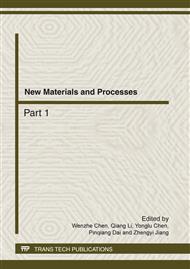p.1657
p.1661
p.1665
p.1669
p.1674
p.1678
p.1682
p.1688
p.1692
Discussion on Control of Hazardous Materials in Ship Recycling Activities
Abstract:
Almost all obsolete vessels contain hazardous materials, which may affect environment and health of workers and will be handed over to registered waste management facility for further treatment and disposal. How to control these hazardous materials and wastes has become one important issue. In this paper, the category, application, location and effect of the hazardous materials onboard were presented. Then, the current status of worldwide major ship recycling yards was analyzed. Finally, the related international conventions and standards were introduced. As we all know, ship recycling operations are often carried out in developing countries, especially in Asia, due to low cost and imperfect regulations. We believe that Chinese ship-breaking companies with the positive response to Hong Kong Convention and the improvement of the management regulation, facilities, operation condition and labor protection, will get the favor of various international ship-owners.
Info:
Periodical:
Pages:
1674-1677
Citation:
Online since:
February 2012
Authors:
Keywords:
Price:
Сopyright:
© 2012 Trans Tech Publications Ltd. All Rights Reserved
Share:
Citation:


